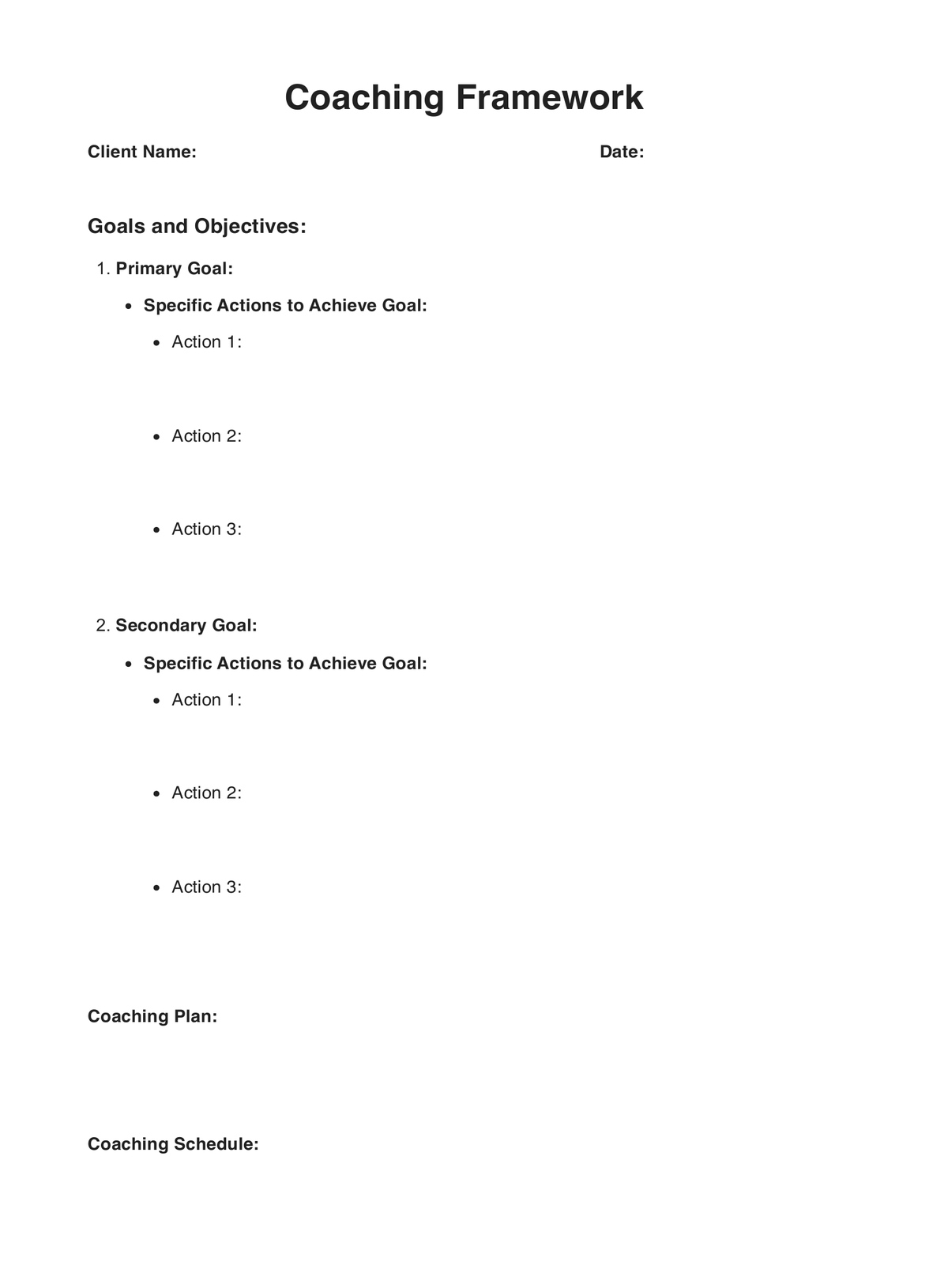Coaching frameworks are utilized by a wide range of professionals, including life coaches, executive coaches, career coaches, business coaches, and personal development coaches. Clients seeking personal growth, skill development, leadership enhancement, and goal achievement also benefit from coaching frameworks.

Coaching Framework
Discover the power of Coaching Frameworks to enhance your coaching practice. Achieve meaningful outcomes with structured approaches. Learn more now.
Coaching Framework Template
Commonly asked questions
Coaching frameworks are employed during coaching sessions and engagements to provide structure and organization. They are used when setting goals, developing action plans, monitoring progress, and evaluating outcomes. Coaches use frameworks to guide clients through transformative journeys, while clients utilize them for personal growth and goal attainment.
Coaching frameworks offer a systematic approach to coaching engagements. Coaches and clients collaborate to set clear objectives and design personalized coaching plans. Throughout the coaching process, frameworks help track progress, provide feedback, and ensure sessions focus on achieving meaningful outcomes. The frameworks serve as guiding tools for coaches and empowering resources for clients.
EHR and practice management software
Get started for free
*No credit card required
Free
$0/usd
Unlimited clients
Telehealth
1GB of storage
Client portal text
Automated billing and online payments











